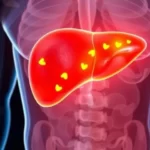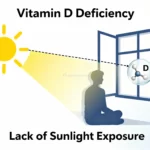A deep dive into Homoeopathic Philosophy often leads curious minds beyond modern medical practices into a realm of holistic health, vital force theories, and even quantum concepts. Almost every foundational text in homeopathy is rich in terminology that even experts interpret differently.
You may encounter statements like “we are fields of energy with a reality separate from the mind.“ Such expressions invite philosophical contemplation but often lack empirical clarity. While they provoke thought, the critical question remains: Do these ideas help us understand illness and guide us toward healing, or do they merely serve as metaphors for unknown truths?
The Core Question in Homoeopathic Philosophy
At its heart, Homoeopathic Philosophy seeks to explain why disease arises and how the body might restore itself through natural means. Unlike conventional medicine, which relies on lab tests and chemical interventions, homeopathy asks us to consider whether illness is more than just physical.
Are we trading logical inquiry for faith-based healing, or can we extract tangible principles, such as the Law of Similars and the concept of minimum dose, that contribute to modern health practices?
Homeopathy vs. Modern Medicine: A Philosophical Divide
Establishment doctors often view homeopathic treatment with suspicion, due to the lack of quantifiable data and reproducible results. But many acknowledge a standard limitation: modern methods often fall short in addressing chronic conditions and psychosomatic disorders.
Homoeopathic Philosophy challenges this by asserting that the body’s vital force—its natural energy—can be guided toward healing. It emphasizes individualized treatment, recognizing that no two patients are alike in symptoms or temperament.
The Mind-Body Connection in Homoeopathic Philosophy
While mind-body medicine is gaining popularity, it often suffers from vague assertions lacking a scientific framework. In contrast, homeopathy introduces structured concepts such as potentization, dynamic dose-response, and holistic diagnosis. Still, these must be analyzed critically, not accepted as doctrine.
Rather than invoking undefined energies, we should explore whether homeopathic principles provide a replicable approach to health. Can the curative powers of the mind, when properly understood, become more than belief?
This Approach to Homoeopathic Philosophy
Our goal is clarity. On this platform, metaphysical ideas will be discussed only when clearly labeled, while known facts and evidence-based practices in homoeopathy will take precedence.
We aim to explore:
- The principles of homeopathy are rooted in Samuel Hahnemann’s Organon of Medicine
- Real-world applications of like cures like
- Case-based insights into individualized homeopathic treatment
- How homeopathic remedies might support natural immunity and chronic care
Conclusion:
If you’re exploring Homoeopathic Philosophy to understand healing, manage a chronic condition, or embrace a more natural remedy-based lifestyle, you’re not alone. The philosophy invites us to explore the laws of healing with both curiosity and discernment.
By merging long-standing principles with a desire for logical inquiry, we may uncover a more holistic and complete understanding of health.
FAQ
1. What is the Philosophy of Organon of Medicine?
The Organon of Medicine, written by Dr. Samuel Hahnemann, forms the foundation of Homoeopathic Philosophy. It explains the principles of healing based on the law of similars, the concept of the vital force, and the need for individualized treatment.
2. What was Dr. Hahnemann’s Philosophy of Medicine?
Dr. Hahnemann believed that disease results from an imbalance in the body’s vital force. His philosophy emphasized natural healing through the use of minimal doses of potentized remedies, aiming to trigger the body’s healing response.
3. What are the Three Pillars of Homeopathy?
The three core pillars of homeopathy are:
- Similia Similibus Curentur (Like cures like)
- Minimum Dose (Use the smallest adequate amount)
- Individualized Treatment (Treat the person, not just the disease)
4. What is the Hughesian Philosophy?
The Hughesian Philosophy, developed by Dr. Richard Hughes, introduced a more clinical and physiological approach to homeopathy, differing from Hahnemann’s spiritual focus on the vital force. It aimed to align homeopathic remedies with conventional medical pathology.











